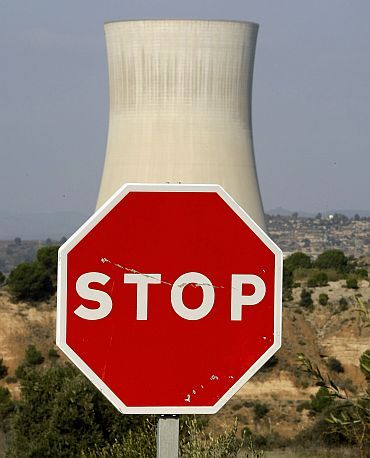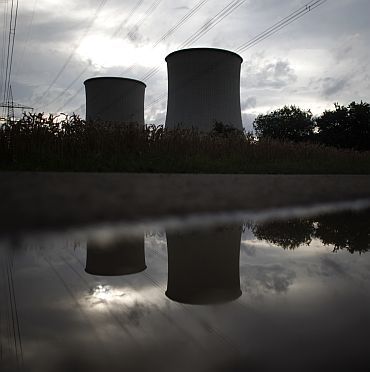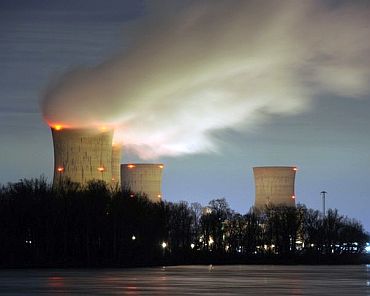
New Delhi, Apr 15 : Not taking any chance of India facing Fukushima-type nuclear disaster, the government is gearing up India's nuclear power plants and other reactors for automatic shutdown, requiring no human intervention, if any earthquakes of the least intensity strikes.
The government-run Nuclear Power Corporation of India Limited, which operates all 20 nuclear power plants in the country, is taking steps for this extra safety, which also includes storage of water and the diesel-operated pumps that start automatically in such eventualities for cooling the reactors.
The NPCIL drew up the additional safety measures, taking lessons from the failure of the back-up power at the Fukushima Daiichi nuclear power station in Japan, leading to overheating of the reactor cores and cascading into hydrogen explosions and radiation leaks into the environment.
While not disclosing at what stage the automatic shutdown mechanism will be triggered, sources said it has been brought down to quite a low level, requiring the operators to kick up the shutdown procedure as soon as they sense seismic waves.

Sources added that all reactors in India were already designed to handle the seismic events, which could occur in their seismic zones, to automatically shut down when ground accelerations exceed specific values. But the new plan requires the automatic shutdown even if the site experiences ground acceleration that is slightly lower than the current safe operating limits.
For instance, a plant may be designed to shut down safely at earthquake-triggered ground acceleration of 0.2g may be geared to automatically shut down at 0.15g.
The NPCIL has not specified at what limits of acceleration will this shutdown begin. The actual figures will vary from site to site, sources said.
The plan, which emerged from an internal task force carrying out the safety audits, also envisages an increase in the duration for which the cores of nuclear reactors that have shut down may be cooled with passive systems that require no electric power.
"We already have good safety systems in place at our nuclear plants. With the new steps we are being super-conservative," a corporation executive was quoted as stating.
He said there would be also a "hook-up" arrangement to supply water through external tankers if the adequate inventory of water in the plant is found wanting.

The NPCIL said the current water inventory at its nuclear reactors is enough to be sufficient for 10 days, and at some places for up to 30 days. Water is crucial in attempts to cool reactors that have shut down but continue to heat because of radioactive decay.
The audits have asked the NPCIL to establish "hook-up" points to make available water to the spent fuel ponds at the nuclear power stations in Tarapur, Kalpakkam, and Rajasthan.
The water reservoirs at NPCIL's reactors in Kalpakkam are three metres above flood level and located at a considerable distance from the coast, while additional shore protection measures have been ordered to reduce the energy of tsunami waves will be at both Tarapur and Kalpakkam.
India's Atomic Energy Regulatory Board is also independently reviewing safety issues of nuclear plants. The NPCIL said it will await the results of that review, but will seek to implement the task force's recommendations immediately.







0 comments:
Post a Comment